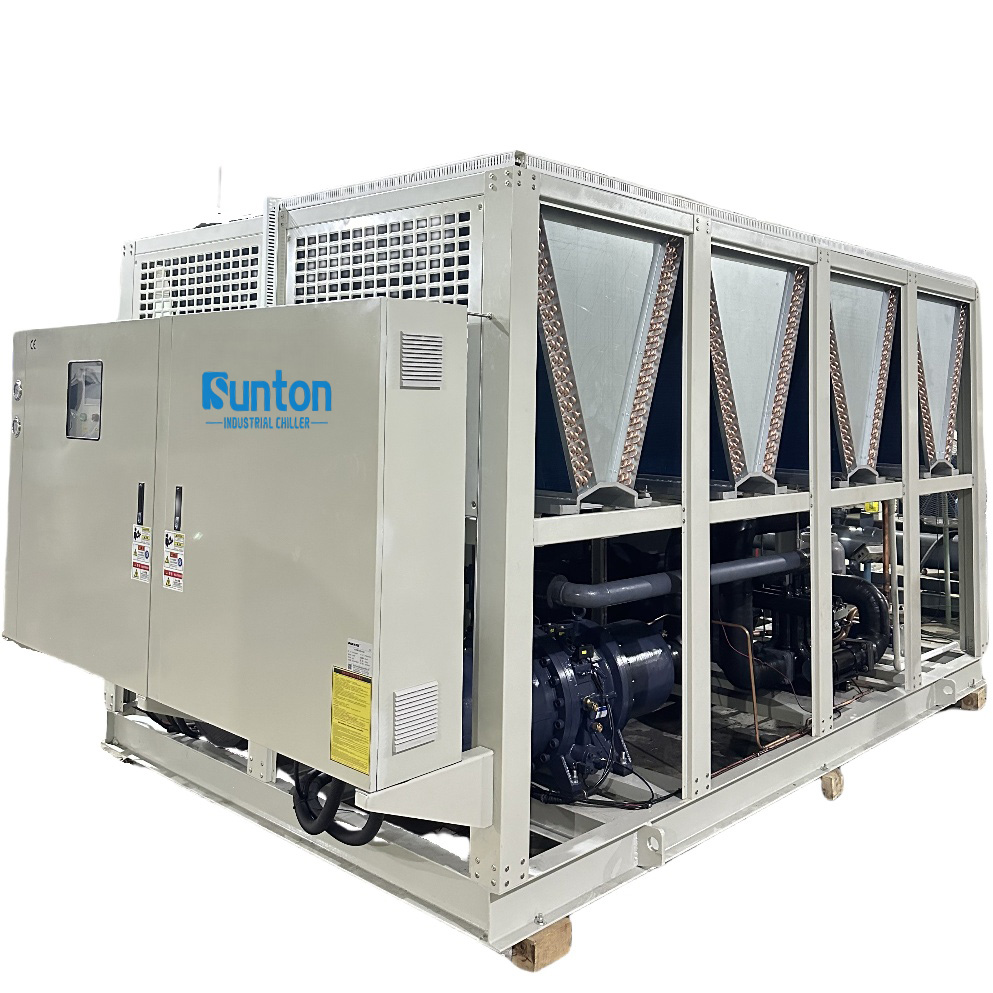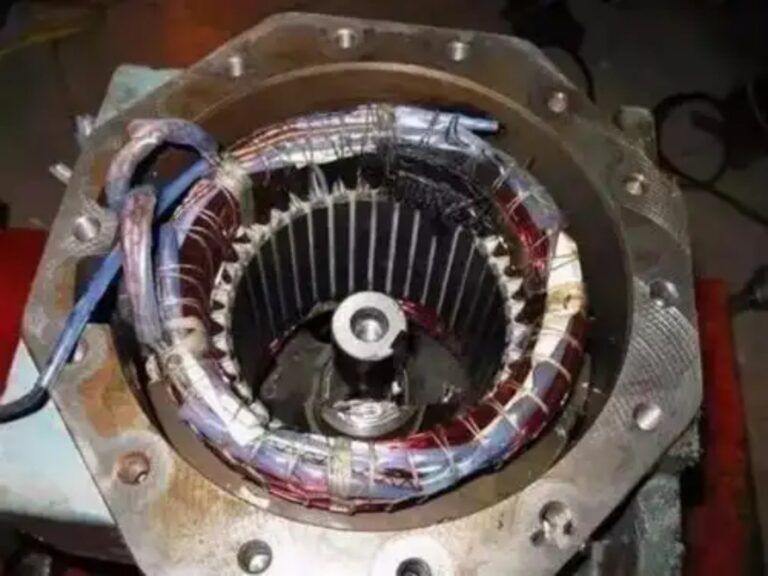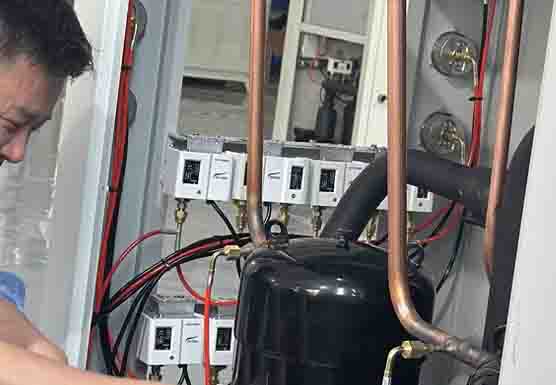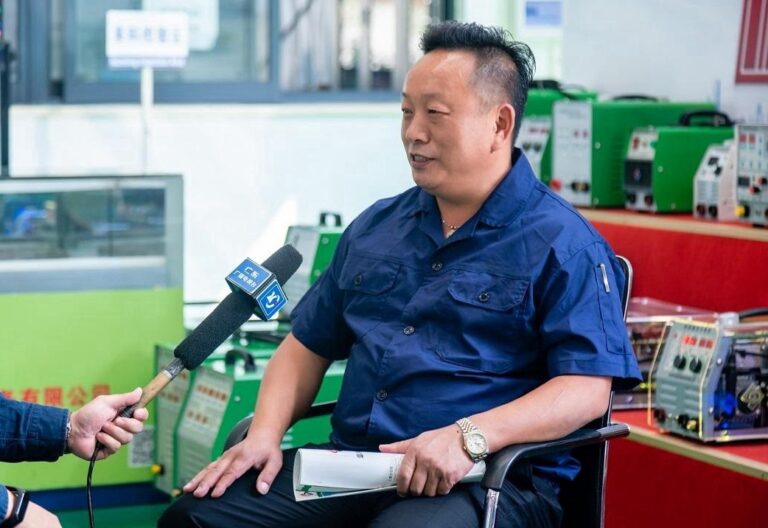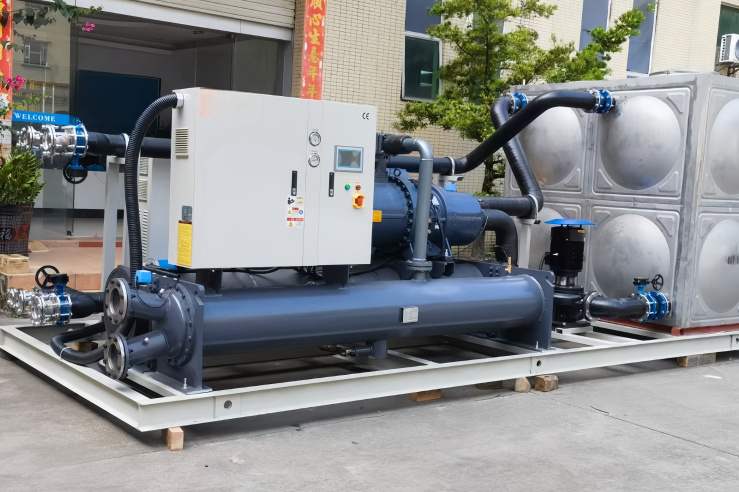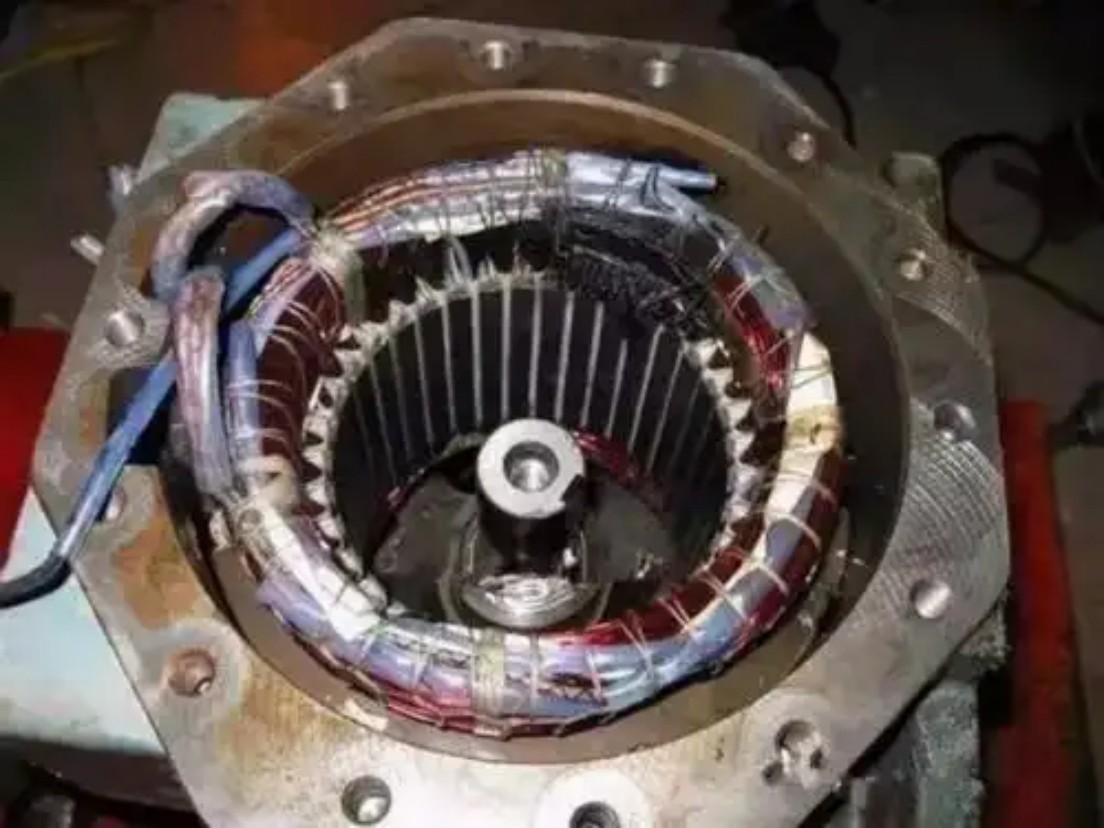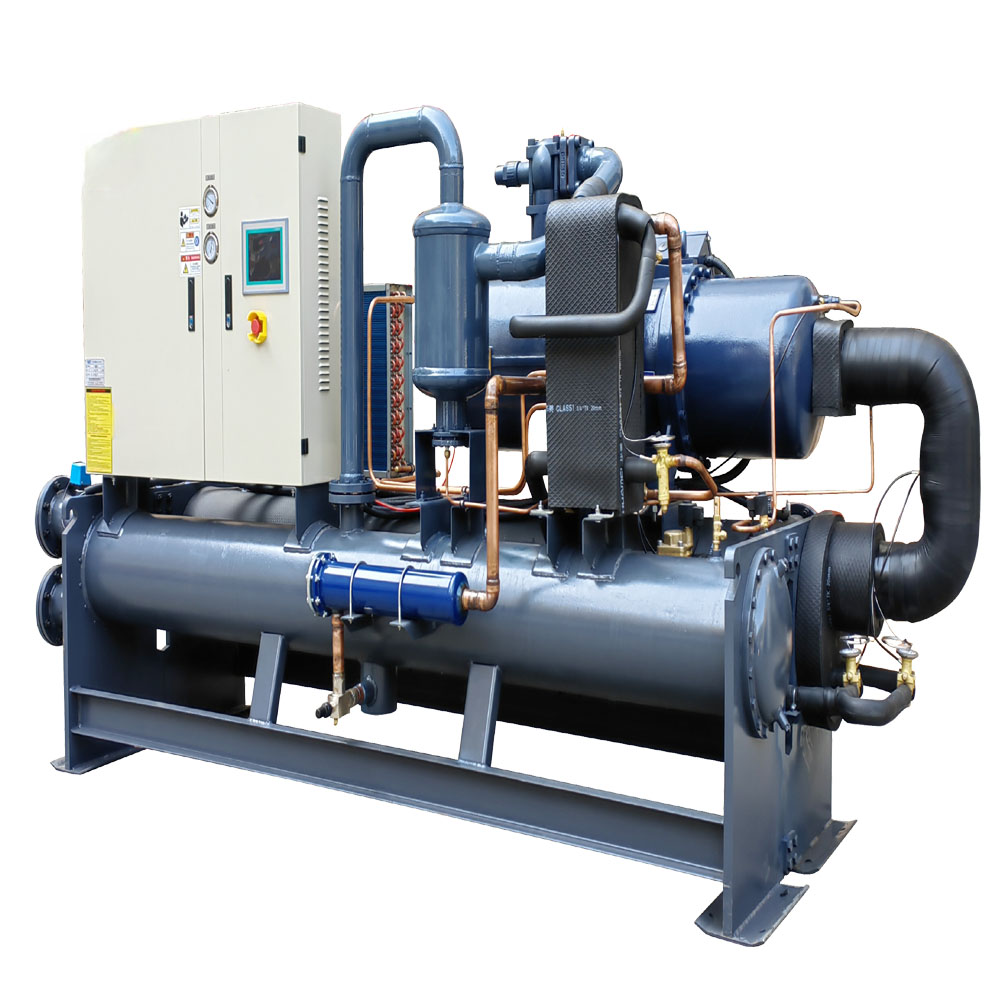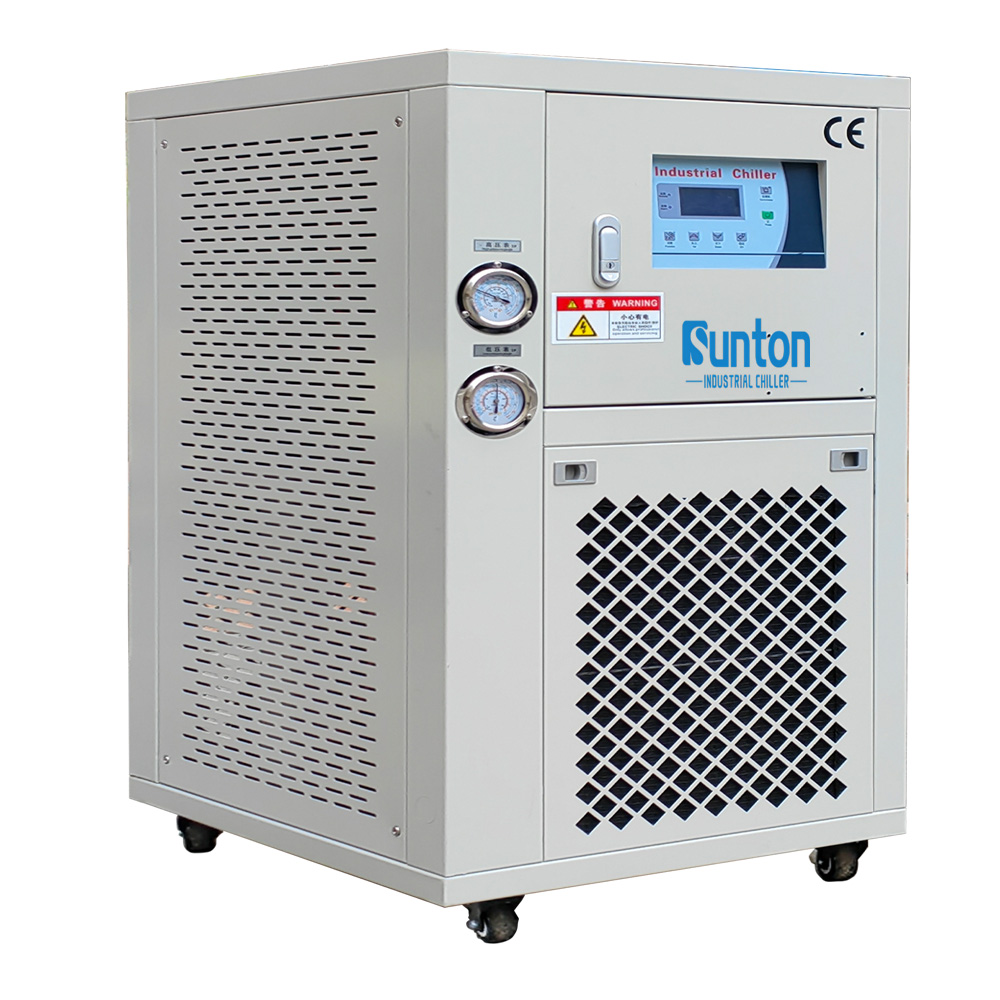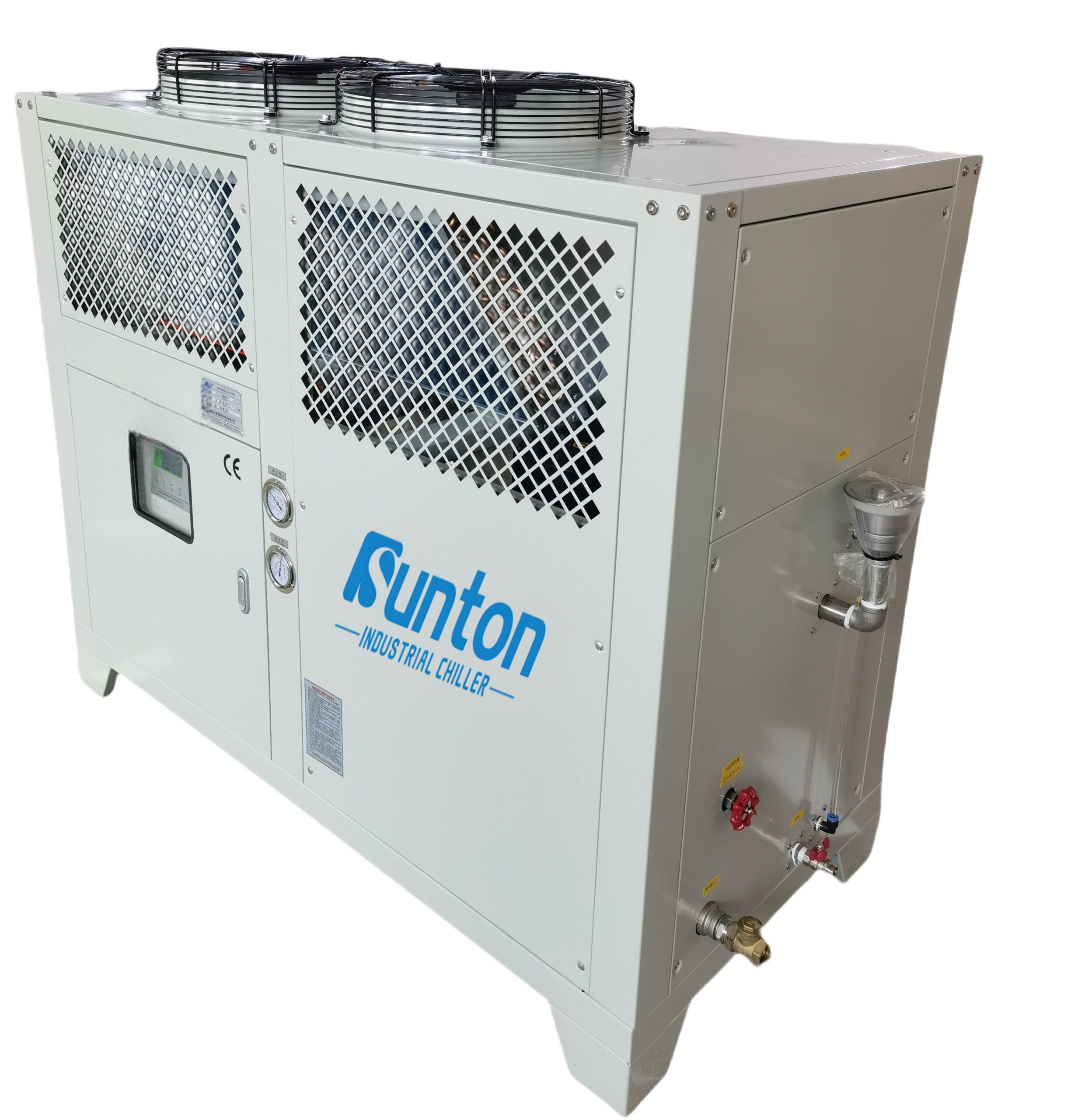-
Khu công nghiệp Dalingshan Quảng Đông
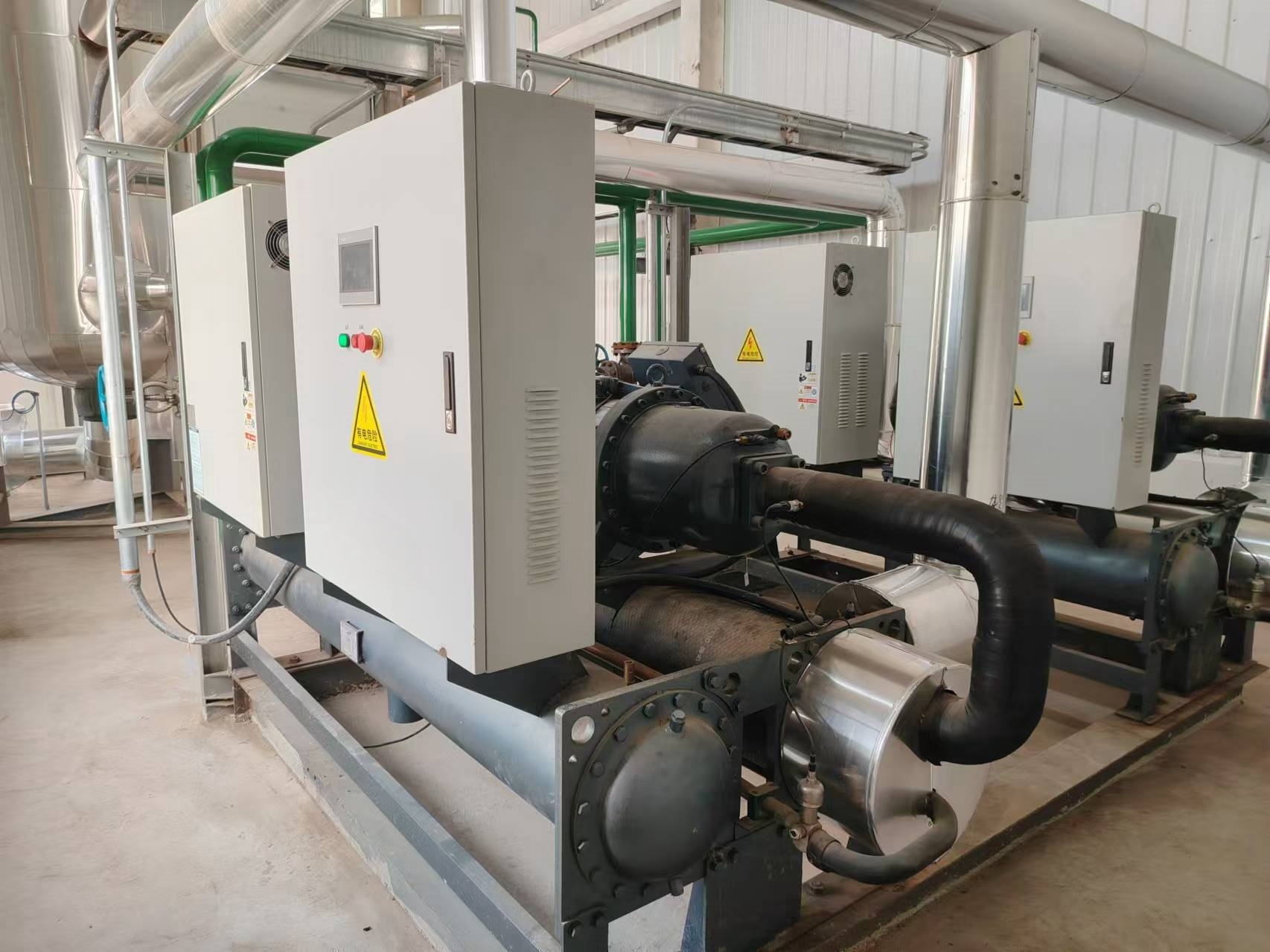
danh sách kiểm tra bảo trì máy làm lạnh công nghiệp & bảo trì phòng ngừa
Danh sách kiểm tra bảo dưỡng máy làm lạnh công nghiệp: Giữ cho hệ thống của bạn hoạt động trơn tru
Bài viết này cung cấp hướng dẫn toàn diện về công nghiệp máy làm lạnh bảo trì, được thiết kế để giúp bạn hiểu được tầm quan trọng của việc bảo trì thường xuyên và tìm hiểu các bước thiết yếu để đảm bảo hệ thống làm lạnh hoạt động hiệu quả. Điều này đặc biệt quan trọng đối với các ngành công nghiệp như nhựa, gia công và chế biến thực phẩm, nơi duy trì nhiệt độ chính xác là rất quan trọng. Bài viết này đáng đọc vì nó cung cấp lời khuyên thực tế và thông tin chi tiết danh sách kiểm tra bảo trì có thể giúp ngăn ngừa thời gian chết tốn kém, kéo dài tuổi thọ của thiết bị và duy trì hiệu suất tối ưu, do đó giúp bạn tiết kiệm thời gian và tiền bạc về lâu dài.
Mục lục
Tại sao bảo trì máy làm lạnh lại quan trọng?
Bảo trì máy làm lạnh rất quan trọng để đảm bảo tuổi thọ và hiệu quả của bạn máy làm lạnh công nghiệp. Là một nhà sản xuất hàng đầu về máy làm lạnh nước công nghiệp, tôi đã tận mắt chứng kiến cách bảo trì thường xuyên giúp ngăn ngừa sự cố bất ngờ và sửa chữa tốn kém. Đối với các ngành công nghiệp như trung tâm dữ liệu, phòng thí nghiệm và cơ sở y tế, một máy làm lạnh là điều cần thiết để duy trì nhiệt độ hoạt động ổn định.
Bảo trì thường xuyên không chỉ kéo dài tuổi thọ của bạn máy làm lạnh nhưng cũng tối ưu hóa hiệu suất của nó. Bằng cách tuân theo một danh sách kiểm tra bảo trì phòng ngừa, bạn có thể xác định các vấn đề tiềm ẩn trước khi chúng trở thành vấn đề lớn. Cách tiếp cận chủ động này giảm thiểu thời gian chết và đảm bảo hoạt động của bạn diễn ra suôn sẻ. Ví dụ, chúng tôi tại The Water Chiller luôn tận tâm cung cấp cho khách hàng kiến thức và hỗ trợ cần thiết để giữ cho hệ thống của họ ở tình trạng tốt nhất. Trong một ví dụ, một nhà máy sản xuất đã giảm thời gian ngừng hoạt động xuống 40% và tăng hiệu suất làm lạnh bởi 15% sau khi triển khai lịch bảo trì thường xuyên. Chúng tôi làm việc chặt chẽ với khách hàng để phát triển các kế hoạch bảo trì tùy chỉnh đáp ứng nhu cầu cụ thể của họ, đảm bảo hiệu suất và độ tin cậy tối ưu.
Có những loại máy làm lạnh nào?
Máy làm lạnh có nhiều loại, mỗi loại được thiết kế để đáp ứng nhu cầu làm mát cụ thể. Các loại phổ biến nhất bao gồm máy làm lạnh bằng không khí Và máy làm lạnh giải nhiệt bằng nước. Máy làm lạnh bằng không khí sử dụng không khí xung quanh để tản nhiệt, trong khi các mô hình làm mát bằng nước, như của chúng tôi Máy làm lạnh nước trục vít giải nhiệt bằng nước, sử dụng nước từ tháp giải nhiệt hoặc nguồn khác. Hiểu được sự khác biệt các loại máy làm lạnh rất quan trọng để lựa chọn hệ thống phù hợp cho ứng dụng của bạn.
Ngoài các loại chính này, còn có các loại chuyên biệt máy làm lạnh giống như cuộn và vít máy làm lạnh, mỗi loại đều có những ưu điểm riêng về hiệu quả và công suất. Máy làm lạnh Glycol, chẳng hạn như những cái được sử dụng trong Máy làm lạnh Glycol công nghiệp cho nhà máy bia, lý tưởng cho các ứng dụng yêu cầu nhiệt độ thấp hơn. Lựa chọn đúng máy làm lạnh phụ thuộc vào các yếu tố như tải làm mát, điều kiện môi trường và yêu cầu về hiệu quả năng lượng. Dưới đây là bảng hữu ích:
| Loại máy làm lạnh | Thuận lợi | Nhược điểm |
| Máy làm lạnh giải nhiệt bằng không khí | Dễ dàng lắp đặt, chi phí ban đầu thấp hơn, không cần tháp giải nhiệt | Ít hiệu quả hơn làm mát bằng nước, bị ảnh hưởng bởi nhiệt độ môi trường, chi phí vận hành cao hơn ở vùng khí hậu nóng |
| Máy làm lạnh giải nhiệt bằng nước | Hiệu suất cao hơn, hoạt động êm hơn, ít bị ảnh hưởng bởi nhiệt độ môi trường, tuổi thọ dài hơn | Chi phí ban đầu cao hơn, đòi hỏi phải có tháp giải nhiệt hoặc nguồn nước khác, lắp đặt phức tạp hơn |
| Cuộn làm lạnh | Hiệu suất cao ở tải một phần, hoạt động êm ái, thiết kế nhỏ gọn | Công suất thấp hơn so với máy làm lạnh trục vít, nhiều bộ phận chuyển động hơn |
| Máy làm lạnh trục vít | Công suất cao, hiệu quả khi tải đầy đủ, hoạt động đáng tin cậy, ít bộ phận chuyển động hơn so với máy làm lạnh trục vít | Ít hiệu quả hơn ở tải một phần, diện tích chiếm dụng lớn hơn, chi phí ban đầu cao hơn |
| Máy làm lạnh Glycol | Thích hợp cho các ứng dụng nhiệt độ thấp, ngăn ngừa đóng băng trong hệ thống | Yêu cầu theo dõi thường xuyên mức glycol, mức tiêu thụ năng lượng cao hơn ở nhiệt độ rất thấp |
| Máy làm lạnh hấp thụ | Sử dụng nhiệt làm nguồn năng lượng chính, phù hợp với các hoạt động có nhiệt thải, thân thiện với môi trường | Hiệu suất thấp hơn so với máy làm lạnh nén, chi phí ban đầu cao hơn, thiết kế phức tạp |
| Máy làm lạnh ly tâm | Hiệu suất cao khi tải đầy đủ, công suất lớn, phù hợp với nhu cầu làm mát quy mô lớn | Hiệu suất thấp hơn ở tải một phần, bảo trì phức tạp, chi phí ban đầu cao hơn |
| Máy làm lạnh chống nổ | Được thiết kế cho môi trường nguy hiểm, đảm bảo an toàn trong điều kiện dễ nổ | Chi phí ban đầu cao hơn, yêu cầu bảo trì chuyên biệt, có thể có công suất hạn chế so với máy làm lạnh tiêu chuẩn |
| Máy làm lạnh trung tâm | Làm mát tập trung cho nhiều khu vực hoặc tòa nhà, hiệu suất cao cho các ứng dụng quy mô lớn, kiểm soát nhiệt độ tốt hơn cho không gian rộng lớn | Chi phí ban đầu cao hơn, lắp đặt phức tạp, có khả năng ngừng hoạt động đáng kể nếu thiết bị trung tâm bị hỏng |
Bạn nên bảo trì máy làm lạnh bao lâu một lần?
Tần số của bảo trì máy làm lạnh phụ thuộc vào một số yếu tố, bao gồm loại máy làm lạnh, điều kiện hoạt động của nó và khuyến nghị của nhà sản xuất. Nói chung, nên thực hiện kiểm tra bảo trì ít nhất hai lần một năm. Tuy nhiên, trong môi trường đòi hỏi khắt khe, chẳng hạn như trong ngành công nghiệp hóa chất và dược phẩm, có thể cần phải kiểm tra thường xuyên hơn.
Đề xuất của chúng tôi lịch trình bảo trì bao gồm hàng ngày, hàng tháng, hàng quý và bảo trì hàng năm nhiệm vụ. Kiểm tra hàng ngày thường bao gồm việc theo dõi nhiệt độ hoạt động và áp lực, trong khi các nhiệm vụ hàng tháng có thể bao gồm kiểm tra rò rỉ và kiểm tra mức chất lỏng. Quý BẢO TRÌ thường bao gồm các cuộc kiểm tra chi tiết hơn, chẳng hạn như vệ sinh cuộn dây tụ điện và kiểm tra các kết nối điện. Bảo trì hàng năm là toàn diện nhất và có thể cần sự hỗ trợ của một kỹ thuật viên có trình độ. Là chuyên gia trong máy làm lạnh công nghiệp hệ thống, chúng tôi nhấn mạnh tầm quan trọng của việc tuân thủ một cách thường xuyên lịch trình bảo trì để đảm bảo hiệu suất và tuổi thọ tối ưu.
Những thành phần cần thiết nào cần kiểm tra trong hệ thống làm lạnh?
Một toàn diện máy làm lạnh Việc kiểm tra phải bao gồm một số thành phần chính để đảm bảo hiệu suất tối ưu và ngăn ngừa các vấn đề tiềm ẩn.
Máy nén
Các máy nén là trái tim của hệ thống làm lạnh, chịu trách nhiệm lưu hành chất làm lạnh. Kiểm tra thường xuyên nên bao gồm việc kiểm tra dầu máy nén mức độ và tình trạng, cũng như theo dõi hoạt động của nó áp lực và nhiệt độ. Bất kỳ tiếng động hoặc rung động bất thường nào cũng phải được kiểm tra kịp thời.
Tụ điện
Các tụ điện tản nhiệt từ chất làm lạnh. Thanh tra cái cuộn dây tụ điện cho bụi bẩn, mảnh vụn và sự ăn mòn. Vệ sinh cuộn dây thường xuyên để duy trì truyền nhiệt hiệu quả. Đối với máy làm lạnh giải nhiệt bằng nước, cũng kiểm tra chất lượng nước và lưu lượng nước. Ví dụ, Máy làm lạnh nước dạng cuộn làm mát bằng nước cần kiểm tra hệ thống nước thường xuyên để tránh đóng cặn và tắc nghẽn.
Máy bốc hơi
Các máy bốc hơi hấp thụ nhiệt từ chất lỏng trong quá trình. Thanh tra cái máy bốc hơi để rò rỉ và đảm bảo đúng cách chất làm lạnh mức độ. Theo dõi nhiệt độ và áp suất của nước lạnh để đảm bảo đáp ứng các yêu cầu quy trình của bạn. Ví dụ, trong ngành thực phẩm và đồ uống, việc duy trì nhiệt độ chính xác là rất quan trọng đối với chất lượng sản phẩm.
Linh kiện điện
Thanh tra tất cả các kết nối điện, bao gồm contactor, rơ le và hệ thống dây điện, để tìm dấu hiệu hao mòn hoặc hư hỏng. Đảm bảo tất cả các kết nối đều chặt chẽ và không có sự ăn mòn. Các thành phần điện hoạt động bình thường là cần thiết cho hoạt động an toàn và hiệu quả của máy làm lạnh.
Danh sách kiểm tra bảo trì máy làm lạnh toàn diện bao gồm những gì?
Một cách kỹ lưỡng danh sách kiểm tra bảo dưỡng máy làm lạnh nên bao gồm nhiều nhiệm vụ khác nhau được thiết kế để giữ cho bạn máy làm lạnh chạy hiệu quả. Đây là một ví dụ về một danh sách kiểm tra:
Nhiệm vụ bảo trì hàng ngày
- Giám sát hoạt động nhiệt độ và áp suất.
- Kiểm tra xem có tiếng động hoặc rung động bất thường không.
- Thanh tra vì chất làm lạnh hoặc rò rỉ nước.
- Xác minh hoạt động bình thường của tất cả các thiết bị điều khiển và an toàn.
Nhiệm vụ bảo trì hàng tháng
- Lau dọn tụ điện Và cuộn dây bốc hơi.
- Kiểm tra và vệ sinh bộ lọc.
- Thanh tra dây đai và ròng rọc (nếu có).
- Bôi trơn động cơ và các bộ phận chuyển động khác.
- Kiểm tra mức chất lỏng và nạp thêm nếu cần.
Nhiệm vụ bảo trì hàng quý
- Thực hiện một chi tiết điều tra của máy nén, bao gồm cả phân tích dầu.
- Kiểm tra và siết chặt tất cả các kết nối điện.
- Thanh tra và làm sạch bộ trao đổi nhiệt.
- Kiểm tra hiệu chuẩn của cảm biến và đồng hồ đo.
Nhiệm vụ bảo trì hàng năm
- Tiến hành kiểm tra hiệu suất toàn bộ hệ thống.
- Thay thế dầu máy nén và bộ lọc.
- Thanh tra và làm sạch hệ thống xử lý nước (cho máy làm lạnh giải nhiệt bằng nước).
- Kiểm tra và sửa chữa bất kỳ rò rỉ chất làm lạnh.
- Thực hiện vệ sinh toàn bộ một cách kỹ lưỡng máy làm lạnh đơn vị.
Cái này danh sách kiểm tra bảo trì phòng ngừa được thiết kế để giải quyết những vấn đề phổ biến nhất máy làm lạnh các vấn đề và đảm bảo hệ thống của bạn hoạt động ở hiệu suất cao nhất.
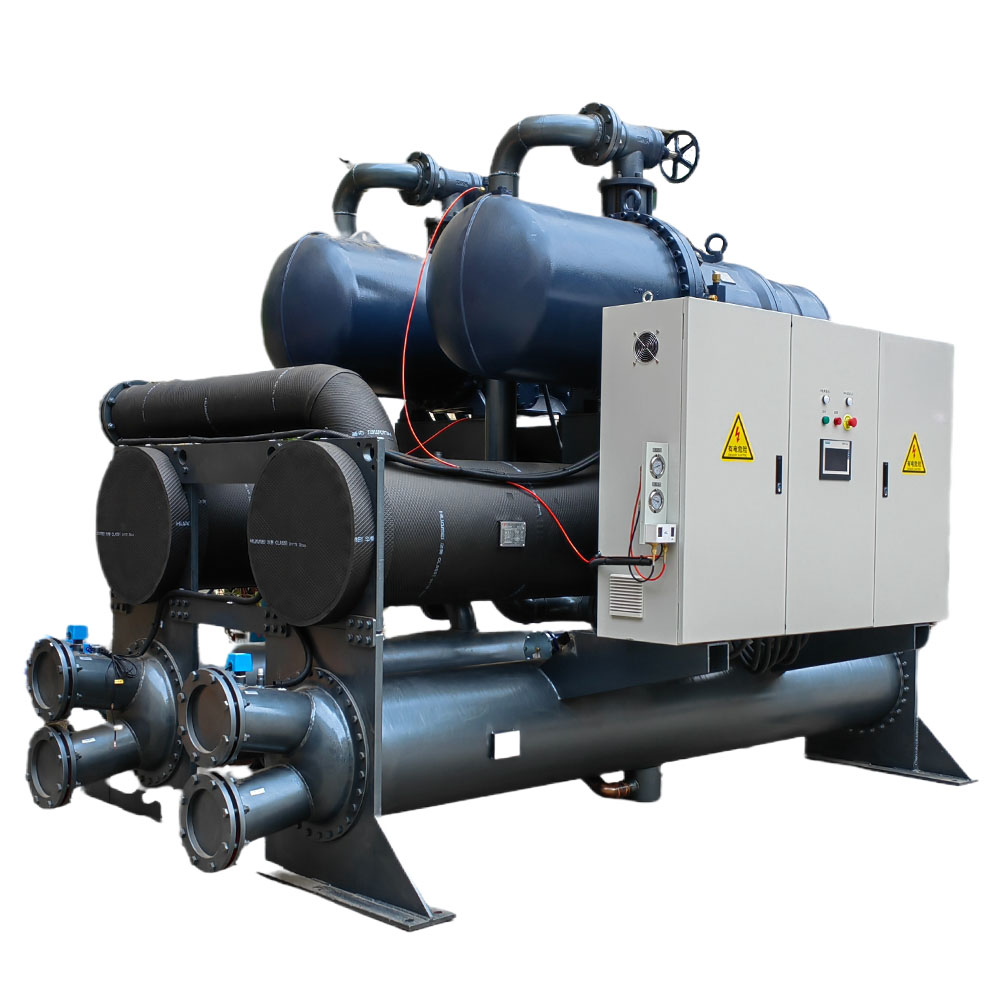
Chất lượng nước đóng vai trò gì trong việc bảo trì máy làm lạnh?
Chất lượng nước là một yếu tố quan trọng trong việc duy trì máy làm lạnh giải nhiệt bằng nước. Chất lượng nước kém có thể dẫn đến đóng cặn, đóng cặn và sự ăn mòn, có thể làm giảm đáng kể hiệu quả của bộ trao đổi nhiệt và tăng chi phí hoạt động. Thường xuyên xử lý nước là điều cần thiết để ngăn ngừa những vấn đề này.
Là một nhà sản xuất công nghiệp máy làm lạnh, chúng tôi khuyên bạn nên triển khai một chương trình xử lý nước toàn diện bao gồm theo dõi mức độ pH, độ cứng và chất rắn hòa tan. Kiểm tra và xử lý thường xuyên có thể giúp duy trì chất lượng nước tối ưu và bảo vệ hệ thống làm mát khỏi bị hư hỏng. Điều này đặc biệt quan trọng đối với các ngành công nghiệp như ngành công nghiệp điện tử và trung tâm dữ liệu, nơi kiểm soát nhiệt độ chính xác là rất quan trọng.
Làm thế nào để phát hiện và xử lý rò rỉ chất làm lạnh?
Rò rỉ chất làm lạnh có thể tác động đáng kể đến hiệu suất của bạn máy làm lạnh và dẫn đến việc sửa chữa tốn kém. Phát hiện và xử lý rò rỉ kịp thời là điều cần thiết để duy trì hiệu suất làm lạnh và ngăn ngừa thiệt hại về môi trường. Rò rỉ chất làm lạnh không chỉ làm giảm khả năng làm mát mà còn có thể dẫn đến tăng mức tiêu thụ năng lượng và khả năng gây hư hỏng cho máy nén.
Kiểm tra thường xuyên nên bao gồm kiểm tra các dấu hiệu rò rỉ, chẳng hạn như vết dầu hoặc tiếng rít. Sử dụng máy dò rò rỉ có thể giúp xác định vị trí rò rỉ. Khi phát hiện rò rỉ, cần phải sửa chữa bởi một kỹ thuật viên có trình độ và chất làm lạnh mức độ nên được kiểm tra và nạp lại nếu cần thiết. Ví dụ, Máy làm lạnh chống nổ được thiết kế với các tính năng an toàn nâng cao nhằm giảm thiểu nguy cơ rò rỉ trong môi trường nguy hiểm.
Tại sao bảo trì máy nén lại quan trọng đối với hiệu suất của máy làm lạnh?
Các máy nén là trái tim của bất kỳ máy làm lạnh hệ thống và việc bảo trì đúng cách là rất quan trọng để đảm bảo hiệu suất tối ưu. Thường xuyên máy nén bảo trì bao gồm kiểm tra mức dầu và tình trạng, theo dõi nhiệt độ hoạt động và kiểm tra tiếng ồn hoặc rung động bất thường. Theo kinh nghiệm của tôi, việc bỏ qua máy nén Việc bảo trì có thể dẫn đến những vấn đề nghiêm trọng, bao gồm giảm khả năng làm mát và tăng mức tiêu thụ năng lượng.
Dầu máy nén đóng vai trò quan trọng trong việc bôi trơn các bộ phận chuyển động và ngăn ngừa mài mòn. Theo thời gian, dầu có thể bị nhiễm bẩn hoặc xuống cấp, làm giảm hiệu quả của nó. Thay dầu thường xuyên, như một phần của việc bảo dưỡng toàn diện danh sách kiểm tra bảo trì, giúp duy trì máy nén hiệu quả và kéo dài tuổi thọ của nó. Ngoài ra, việc theo dõi máy nén hoạt động nhiệt độ và áp suất có thể giúp xác định các vấn đề tiềm ẩn trước khi chúng trở thành vấn đề lớn.
Bạn bảo dưỡng cuộn ngưng tụ và cuộn bay hơi như thế nào?
Duy trì tụ điện Và cuộn dây bốc hơi là điều cần thiết cho việc truyền nhiệt hiệu quả và tối ưu máy làm lạnh hiệu suất. Theo thời gian, bụi bẩn, mảnh vụn và các chất gây ô nhiễm khác có thể tích tụ trên các cuộn dây, làm giảm khả năng truyền nhiệt hiệu quả của chúng. Vệ sinh thường xuyên tụ điện Và cuộn dây bốc hơi giúp duy trì hiệu quả truyền nhiệt và ngăn ngừa các vấn đề như giảm khả năng làm mát và tăng mức tiêu thụ năng lượng.
Vì máy làm lạnh bằng không khí, các cuộn dây tụ điện nên được vệ sinh thường xuyên bằng khí nén hoặc bàn chải mềm. Máy làm lạnh giải nhiệt bằng nước có thể cần các phương pháp vệ sinh chuyên biệt hơn, chẳng hạn như vệ sinh bằng hóa chất hoặc chải cơ học, để loại bỏ cặn và bám bẩn. Theo kinh nghiệm của tôi, việc bảo dưỡng cuộn dây thường xuyên không chỉ cải thiện máy làm lạnh hiệu suất mà còn kéo dài tuổi thọ của thiết bị. Ví dụ, trong Máy làm lạnh trung tâm trục vít làm mát bằng không khí thói quen bảo trì, chúng tôi nhấn mạnh tầm quan trọng của việc duy trì cuộn tụ điện sạch sẽ để duy trì khả năng truyền nhiệt tối ưu.
Những biện pháp kiểm soát an toàn nào cần được kiểm tra thường xuyên?
Kiểm soát an toàn máy làm lạnh được thiết kế để bảo vệ hệ thống khỏi hư hỏng và đảm bảo hoạt động an toàn. Việc kiểm tra thường xuyên các biện pháp kiểm soát này là điều cần thiết để ngăn ngừa tai nạn và duy trì độ tin cậy của hệ thống. Kiểm soát an toàn máy làm lạnh thường bao gồm các bộ cắt áp suất cao và thấp, bảo vệ chống đóng băng và bảo vệ quá tải cho máy nén và các thành phần khác.
Kiểm tra thường xuyên các điều khiển này đảm bảo chúng hoạt động chính xác và sẽ kích hoạt khi cần. Ví dụ, các bộ ngắt áp suất cao được thiết kế để tắt máy nén nếu áp suất chất làm lạnh vượt quá giới hạn an toàn, ngăn ngừa thiệt hại cho hệ thống. Tương tự như vậy, các biện pháp kiểm soát bảo vệ đóng băng ngăn ngừa máy bốc hơi khỏi bị đóng băng, có thể gây hư hỏng và làm giảm khả năng làm mát. Là một máy làm lạnh nhà sản xuất, chúng tôi ưu tiên sự an toàn trong các thiết kế của mình và khuyến nghị kiểm tra thường xuyên tất cả các biện pháp kiểm soát an toàn như một phần của quá trình toàn diện danh sách kiểm tra bảo trì, giống như của chúng tôi Máy làm lạnh công nghiệp cho nhà máy trộn bê tông hướng dẫn bảo trì.
Câu hỏi thường gặp
Tôi nên thay dầu cho máy nén của máy làm lạnh bao lâu một lần?
Người ta thường khuyên nên thay đổi dầu máy nén hàng năm, nhưng điều này có thể thay đổi tùy thuộc vào điều kiện hoạt động và cụ thể máy làm lạnh mô hình. Phân tích dầu thường xuyên có thể giúp xác định khoảng thời gian thay dầu tối ưu.
Dấu hiệu rò rỉ chất làm lạnh là gì?
Dấu hiệu của một rò rỉ chất làm lạnh bao gồm khả năng làm mát giảm, tiếng rít, vết dầu gần phụ kiện và máy làm lạnh chạy lâu hơn bình thường để đạt được nhiệt độ mong muốn.
Tôi có thể tự vệ sinh cuộn ngưng tụ hay nên thuê thợ chuyên nghiệp?
Trong khi bạn có thể dọn dẹp cuộn dây tụ điện bản thân bạn sử dụng khí nén hoặc bàn chải mềm, tốt nhất là nên thuê một chuyên gia để vệ sinh kỹ lưỡng, đặc biệt là đối với máy làm lạnh giải nhiệt bằng nước có thể cần phải vệ sinh bằng hóa chất.
Tôi phải làm gì nếu máy làm lạnh của tôi phát ra tiếng động bất thường?
Những tiếng động bất thường có thể chỉ ra nhiều vấn đề khác nhau, chẳng hạn như lỗi máy nén, các thành phần lỏng lẻo hoặc các vấn đề với chất làm lạnh sạc. Tốt nhất là tắt máy làm lạnh và được kiểm tra bởi một kỹ thuật viên có trình độ.
Làm thế nào tôi có thể cải thiện hiệu suất sử dụng năng lượng của máy làm lạnh?
Bảo trì thường xuyên, bao gồm vệ sinh cuộn dây, kiểm tra chất làm lạnh mức độ và đảm bảo xử lý nước đúng cách có thể cải thiện đáng kể hiệu quả năng lượng. Ngoài ra, hãy cân nhắc nâng cấp lên hiệu quả hơn máy làm lạnh mô hình nếu hệ thống hiện tại của bạn đã lỗi thời.
Việc duy trì nồng độ glycol chính xác trong máy làm lạnh glycol quan trọng như thế nào?
Duy trì đúng glycol nồng độ là rất quan trọng để ngăn ngừa đóng băng và đảm bảo hoạt động hiệu quả trong máy làm lạnh glycol. Thấp glycol mức độ có thể dẫn đến đóng băng và làm hỏng hệ thống, trong khi mức độ cao có thể làm giảm hiệu quả truyền nhiệt. Thường xuyên theo dõi và điều chỉnh glycol tập trung khi cần thiết.
Bản tóm tắt
- Thường xuyên bảo trì máy làm lạnh rất quan trọng để đảm bảo hiệu suất tối ưu, ngăn ngừa thời gian chết tốn kém và kéo dài tuổi thọ cho thiết bị của bạn.
- Các loại khác nhau máy làm lạnh, bao gồm làm mát bằng không khí Và làm mát bằng nước các mẫu xe có nhu cầu bảo trì cụ thể.
- Một toàn diện danh sách kiểm tra bảo trì nên bao gồm các nhiệm vụ hàng ngày, hàng tháng, hàng quý và hàng năm.
- Các thành phần chính cần kiểm tra bao gồm máy nén, tụ điện, máy bốc hơivà kết nối điện.
- Chất lượng nước đóng vai trò quan trọng trong việc duy trì máy làm lạnh giải nhiệt bằng nước, đòi hỏi phải xét nghiệm và điều trị thường xuyên.
- Phát hiện và giải quyết rò rỉ chất làm lạnh kịp thời là điều cần thiết để duy trì máy làm lạnh hiệu quả và ngăn ngừa thiệt hại về môi trường.
- Thường xuyên máy nén bảo trì, bao gồm thay dầu và kiểm tra, là rất quan trọng để có hiệu suất tối ưu.
- Duy trì tụ điện Và cuộn dây bốc hơi đảm bảo truyền nhiệt hiệu quả và ngăn ngừa các vấn đề như giảm khả năng làm mát và tăng mức tiêu thụ năng lượng.
- Kiểm tra thường xuyên kiểm soát an toàn máy làm lạnh rất quan trọng để ngăn ngừa tai nạn và đảm bảo hoạt động an toàn.
- Tuân thủ một thường xuyên lịch trình bảo trì và giải quyết vấn đề kịp thời có thể giúp bạn tránh được việc sửa chữa tốn kém và duy trì độ tin cậy của máy làm lạnh công nghiệp.
- Bằng cách hiểu được nhu cầu cụ thể của bạn máy làm lạnh và thực hiện kế hoạch bảo trì toàn diện, bạn có thể đảm bảo hiệu suất và hiệu quả lâu dài của hệ thống.
- Tham khảo ý kiến của các chuyên gia giàu kinh nghiệm tại The Water Chiller, như nhóm hỗ trợ của chúng tôi Máy làm lạnh công nghiệp cho thủy canh hệ thống, để phát triển một kế hoạch bảo trì tùy chỉnh phù hợp với các yêu cầu cụ thể của bạn.
